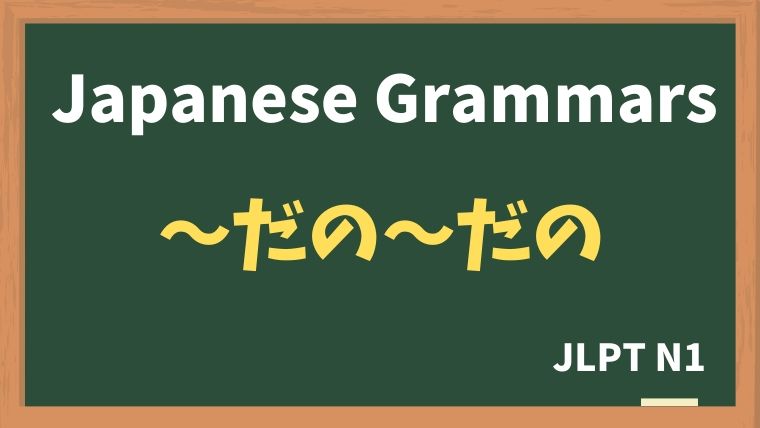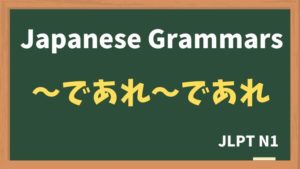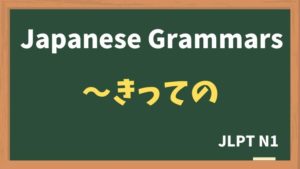
Explanation:〜だの〜だの
fa-check-circleMeaning
"〜や〜など"
話す人は不満や非難の気持ちがあります。
Used to list multiple examples or complaints, often with a slightly negative or critical tone. It implies that the speaker is overwhelmed, frustrated, or dissatisfied with the listed items. It is similar to saying "this, that, and the other" in English, and often has a connotation of discontent or annoyance.
fa-check-circleForm
V(plain form) + だの
イA(plain form) + だの
ナA+ だの
N+ だの
fa-check-circlePoints
- Listing Multiple Items: This structure is used to list several things, often in a somewhat disapproving or frustrated manner.
- Negative or Critical Tone: It commonly conveys a sense of dissatisfaction, complaints, or frustration about the mentioned things.
- Casual Speech: This expression is typically used in informal, casual conversations rather than formal or written contexts.
fa-check-circleJLPT Level
N1
fa-check-circleNote
話す時に使います。
Sample sentenes
私の母は毎日、勉強しろだの、ゲームのしすぎだのうるさい。
My mom nags me every day to study and complains that I play too many games.
マイケルさんは授業がつまらないだの、わからないだの文句ばかり言っている。
Michael is always complaining that the classes are boring and that he doesn't understand them.
仕事が遅いだの、ミスが多いだの、彼に言われると腹が立つ。
It makes me angry when he tells me that my work is slow and I make too many mistakes.
チョコだの、アイスだの甘いものばかり食べているから虫歯になるんだよ。
You get cavities because you eat too many sweets like chocolate and ice cream.
フライドポテトだの、フライドチキンだの、油っぽいものばかり食べているから太るんだよ。
You gain weight because you eat too many greasy foods like French fries and fried chicken.
母は早く結婚しろだの、もっといい会社に転職しろだのうるさい。
My mom nags me to get married soon and to find a better job.
週末は掃除だの洗濯だのやらなければいけないことが多すぎる。
On the weekends, I have too many things to do like cleaning, laundry, and so on.
Vocabulary
| Japanese |
English | |
| 虫歯 | むしば | tooth decay / cavity |






